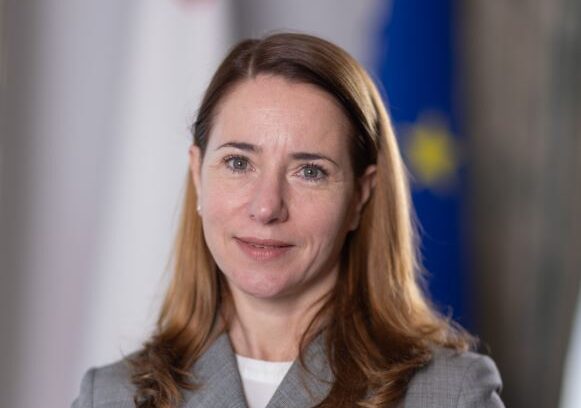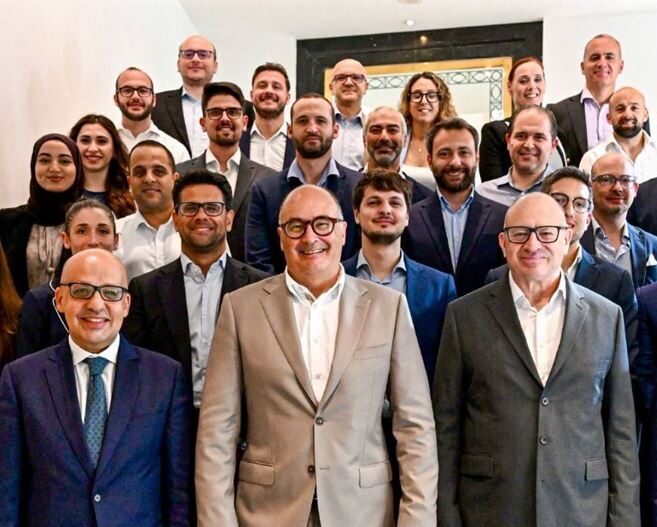Stephanie Fabri is an economist and lecturer at the University of Malta, specialising in entrepreneurship, strategic management, and public policy. Having worked in both the private and public sectors, she brings a wealth of knowledge and experience in applying economics to firms, consumers, and communities.
What do you consider to be the main factors that have led to Malta becoming an attractive investment destination?
For an economy to grow and prosper, policy makers must ensure that the right policies and initiatives are in place to sustain an adequate level of attractiveness and competitiveness. Attracting investment and sustaining competitiveness is no easy feat. Various overlapping factors come into play – institutions, infrastructure, economic stability, state of the markets, talent, innovation, and so on.
Looking back at Malta’s recent history, EU accession led to market liberalisation, and as a result, cross-border trade between Malta and other EU and non-EU countries increased. This brought about a need for investment, not only in the islands’ infrastructure but also in their human resources.
As trade intensified and investment continued, the economy became attractive to emerging industries such as financial services, gaming, and ICT, among others. As a result, these new activities led to added value in traditional sectors such as professional services, tourism, and manufacturing.
What are some of the main advantages and incentives Malta brings to the table for prospective investors?
Despite Malta’s small size, geographical location, and other challenges that it encounters, it has always managed to retain a certain degree of attractiveness in the eyes of potential investors.
Investors come to Malta for its attractive corporate tax regime, reliable ICT infrastructure, political and economic stability, English-speaking workforce, and also competitive labour costs. EU membership, and Malta’s proximity to North Africa, also play a crucial role in Malta’s attractiveness.
In line with this, institutions like Malta Enterprise and TradeMalta have a number of incentives in place that help boost FDI in Malta. Such incentives revolve around access to finance, tax credits, R&D initiatives, and training initiatives, among others.
Foreign investors have noted that the level of scrutiny experienced in Malta is perceived to be higher than in competing investment destinations. Can the fact that Malta is now no longer greylisted help the local regulatory regime reach a better balance?
Malta thrives on the power of regulated industries and jurisdictional innovation. We need to ensure that our laws and regulatory structures remain competitive and attractive. These need to be reviewed periodically and new economic niches need to be identified.
Malta’s robust economy has gone from strength to strength in recent years. To what extent has foreign investment played a part in this, and can the island do more in this regard?
The increasing investment flows, mainly as a result of service-based and regulated activities, have contributed significantly to the islands’ economic success. Malta’s economy is to date one of the fastest-growing in the European Union, with employment levels exceeding the EU average. Still, as a nation, we can do much more to reach our investment potential.
Let’s talk about the challenges. Which areas could pose a hurdle to investment, and how can these challenges be overcome?
First, we need to ensure better access to capital, ease of resolving insolvency, and overall ease of setting up a business. Second, more investment in R&D, and not only in service-based industries, but also in particular in traditional industries such as agriculture, fisheries, construction, and manufacturing.
Third, enhancing efficiency and effectiveness in the area of transport and logistics. This needs to be a two-pronged approach – focus incentives on curtailing the negative effects that have emerged post-Covid and as a result of the war in Ukraine, and invest in policies aimed at reducing emissions.
Fourth, Malta has come out of greylisting in a year following an intensive period of capacity-building in its regulatory institutions. We now need to ensure that the jurisdiction retains the attained level of compliance by all stakeholders.
Of course, these are just a few examples. The ecosystem of FDI is complex, with various factors that come into play. One important rule is to ensure that this complex ecosystem is not fragmented across different institutions and policy makers.
This feature was first carried in the Malta Invest 2023 edition. Malta Invest is the first-ever comprehensive international investment guide focusing on Malta as a destination. It is produced by Content House Group.
Alison Micallef appointed CEO at Malta Development Bank
She steps into the new role effective immediately.
Impact beyond profit: CSR in Malta is a must in 2025
Nowadays, corporate social responsibility can no longer take a backseat in your business's vision.
Malta’s private equity sector urged to seize opportunities at high-level CEO seminar
Panellists highlighted Malta’s potential as a destination for private capital, citing its English-speaking workforce, regulatory accessibility, and strategic location.
Ronald Attard takes on expanded role as Managing Partner for Risk Management at EY Europe Central
He has built experience in management accounting, corporate finance, and mergers and acquisitions.









